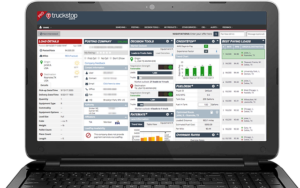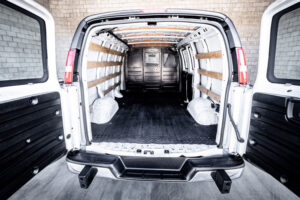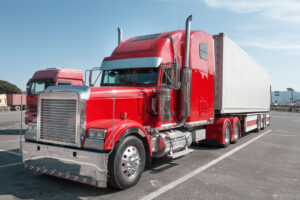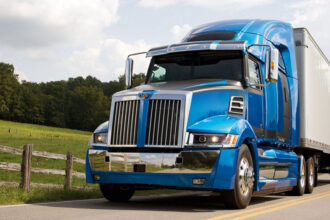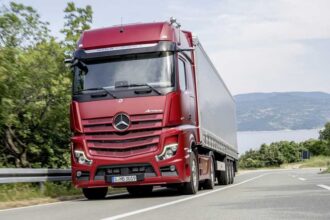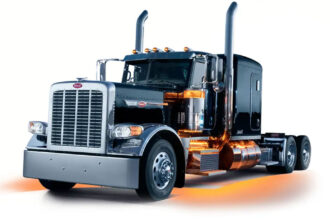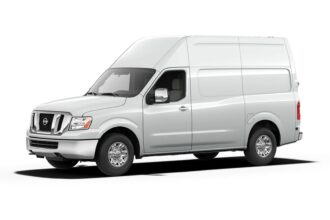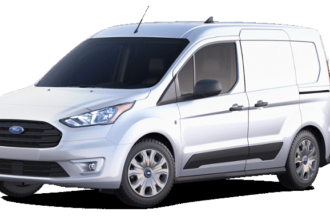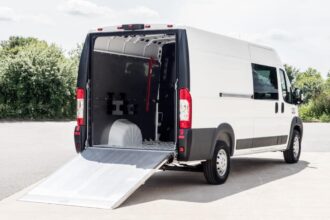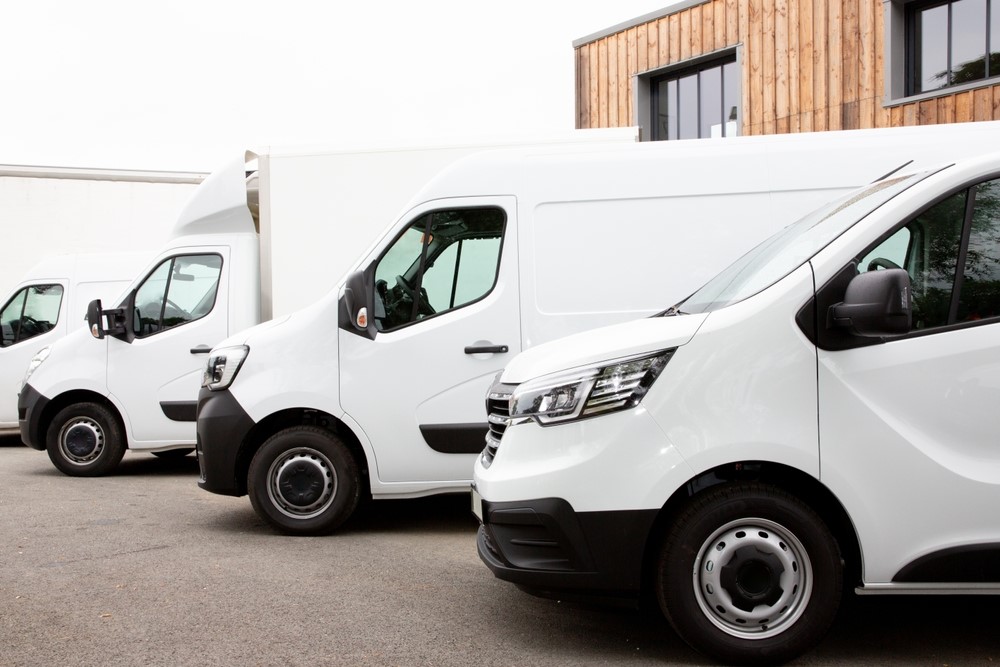Table of Contents
Introduction
Starting an 18-wheeler business is a significant venture with many moving parts. One of the critical decisions you need to make is choosing the right business structure and a C corporation structure could be the fuel you need to haul your ambitions to the next level.
But before you hit the gas, is a C corporation the perfect fit, or will it just leave you stuck in a bureaucratic ditch? This guide navigates the roadblocks and benefits, helping you decide if a C corporation is the key to unlocking your trucking empire’s true potential.
18-Wheeler Business: Should I Set Up As A C Corp?
- Why Consider a C Corp?
- Things to Consider Before Taking the Wheel
- Is a C Corp Right for You?
- How to Set Up Your 18-Wheeler Business as a C Corporation
- Recap
Why Consider a C Corp?
Before diving into the setup process, it’s essential to understand why you might choose a C Corp for your 18-wheeler business:
- Shield Your Assets: Cruise with confidence, knowing that the C corp protects your personal assets from business liabilities. An accident? Your house and savings stay safe.
- Fuel Growth: Envision a multi-trailer empire? A C corporation lets you issue stock, attracting investors to become partners in your success. This opens the door to raising capital and accelerating your expansion.
- Built to Last: Your business keeps rolling even through ownership changes. A C corporation’s perpetual existence ensures a smooth transition if you bring on new partners or decide to pass the reins one day.
Things to Consider Before Taking the Wheel
Taxation
Be aware, C corporations get hit with taxes twice. The company pays on its profits, then you pay again when you take that money out as dividends. This double taxation can squeeze your profits, especially for smaller businesses.
Compliance Costs
Buckle up for more paperwork! C corporations demand stricter accounting and legal procedures. Compared to simpler structures, this means more time and money spent ensuring everything is in order.
Complexity
C corporations come with more rules of the road. You need to hold regular board meetings, mountains of records, and follow corporate governance regulations are all part of the ride. This added complexity might not be the smoothest gear shift for you.
Is a C Corp Right for You?
Growth Plans
If you’re dreaming of a multi-trailer empire and see yourself shaking hands with investors, a C corporation could be your perfect truck stop. This structure lets you issue stock, fueling your growth by attracting partners who share your vision.
Profitability
Already hauling in significant profits? An S corporation might be a better fit. This structure avoids double taxation under certain conditions, potentially saving you money on your tax bill.
Risk Tolerance
If you’re just starting out and taking it slow and steady, a simpler option like an LLC might be the way to go. It offers protection for your personal assets without all the complexities of a C corporation. This can be a wise choice if you are risk averse and want to focus on building your business without extra bureaucratic burdens.
How to Set Up Your 18-Wheeler Business as a C Corporation
1. Choose Your Business Name
To establish your 18-wheeler business as a C corporation, craft a catchy and unique name that sets your business apart from the crowd! Make sure it reflects your brand identity and resonates with your target audience. But before you get too attached, remember to check availability.
Most states have a business name database online where you can see if your dream name is already taken. Some states even allow you to reserve your chosen name for a period of time, giving you peace of mind while you proceed with the registration process.
2. Appoint Directors
To set up your 18-wheeler business as a C corporation, it requires at least one director to captain the ship. This individual, or group of individuals depending on your structure, will be responsible for making key decisions that steer your business forward. They’ll also ensure the corporation operates according to the established bylaws, which act as your internal rulebook.
>>>PRO TIPS: 18-Wheeler Business Plan
3. File Articles of Incorporation
To form your 18-wheeler business as a C corporation, Articles of Incorporation are your ticket to becoming a bona fide C corporation. File them with your state’s Secretary of State office to declare your business’ existence to the world.
This document outlines key details like your company name, address, and purpose, along with the number of shares you’re authorized to issue and the names of your directors. Be sure to factor in the filing fee, which varies by state, as part of your incorporation expenses.
4. Create Corporate Bylaws
To initiate your 18-wheeler business as a C corporation, craft your corporation’s internal rulebook – the bylaws. This document lays out the roadmap for how your C corporation will operate.
It defines the roles and responsibilities of your directors and officers, establishes protocols for conducting meetings, and covers other vital procedures. You can choose to draft the bylaws yourself, or for peace of mind, consider consulting with a lawyer to ensure they are comprehensive and legally sound. Once finalized, it is necessary for your board of directors to formally adopt the bylaws to make them official.
5. Hold Your First Board Meeting
To start your 18-wheeler business as a C corporation, the first board meeting is crucial. This initial meeting holds significant weight, as it’s where you officially adopt the corporate bylaws you previously crafted. Here, you also elect officers like a president, treasurer, and secretary to handle the corporation’s day-to-day operations.
And if you plan on having shareholders, this is the meeting where you secure their official approval to issue stock, bringing them on board as partners in your trucking business!
6. Obtain an Employer Identification Number (EIN)
To Launch your 18-wheeler business as a C corporation, don’t forget to grab your EIN – your business’s essential tax ID number assigned by the IRS. Think of it as your social security number for the company. You can apply for it quickly and easily through the IRS website. This ensures your C corporation is set up to meet its tax obligations from the get-go.
7. Register for State and Local Taxes
To organize your 18-wheeler business as a C corporation, Steer clear of any state and local tax roadblocks! Depending on your location, you might need to register for specific taxes to keep your C corporation compliant. This could include state income tax, sales tax (if you’re selling goods), and even unemployment taxes. You may need to obtain a state tax ID, which is similar to an EIN but on the state level. Don’t worry, the process is usually straightforward, and most states allow you to register online.
>>>GET SMARTER: Do I Need Authority for an 18-Wheeler?
8. Apply for Necessary Permits and Licenses
To structure your 18-wheeler business as a C corporation, get the right government green light to hit the road. You’ll likely need a DOT number, issued by the U.S. Department of Transportation, to ensure your operations meet federal safety standards.
If you plan on crossing state lines, you also require an Operating Authority. And don’t forget to check with your state’s transportation department for any additional permits or licenses specific to your location. Having all the necessary documentation in order keeps you cruising smoothly and avoids any unwelcome roadside hassles.
9. Open a Business Bank Account
To incorporate your 18-wheeler business as a C corporation, keeping your finances organized is key to a successful business. To maintain a clear separation between your personal funds and your C corporation’s finances, opening a dedicated business bank account is essential.
This simplifies your accounting and also reinforces the limited liability protection that a C corporation offers. By keeping your business finances separate, you safeguard your personal assets from any potential business complications.
Recap
Starting your 18-wheeler business as a C corporation can offer significant benefits like asset protection, growth opportunities through stock issuance, and perpetual existence, but it also comes with complexities such as double taxation, compliance costs, and extensive regulations.
If you’re aiming for a large-scale operation with investors, a C corp might be your ideal choice. However, if you’re focused on maximizing profits and simplicity, consider other structures like an S corp or LLC. By carefully evaluating your growth plans, profitability, and risk tolerance, you are ready to decide if a C corporation is the right vehicle to drive your trucking business forward.
Follow the outlined steps—from naming your business and appointing directors to filing necessary paperwork, obtaining permits, and maintaining compliance—to ensure a smooth and successful setup for your 18-wheeler venture.



